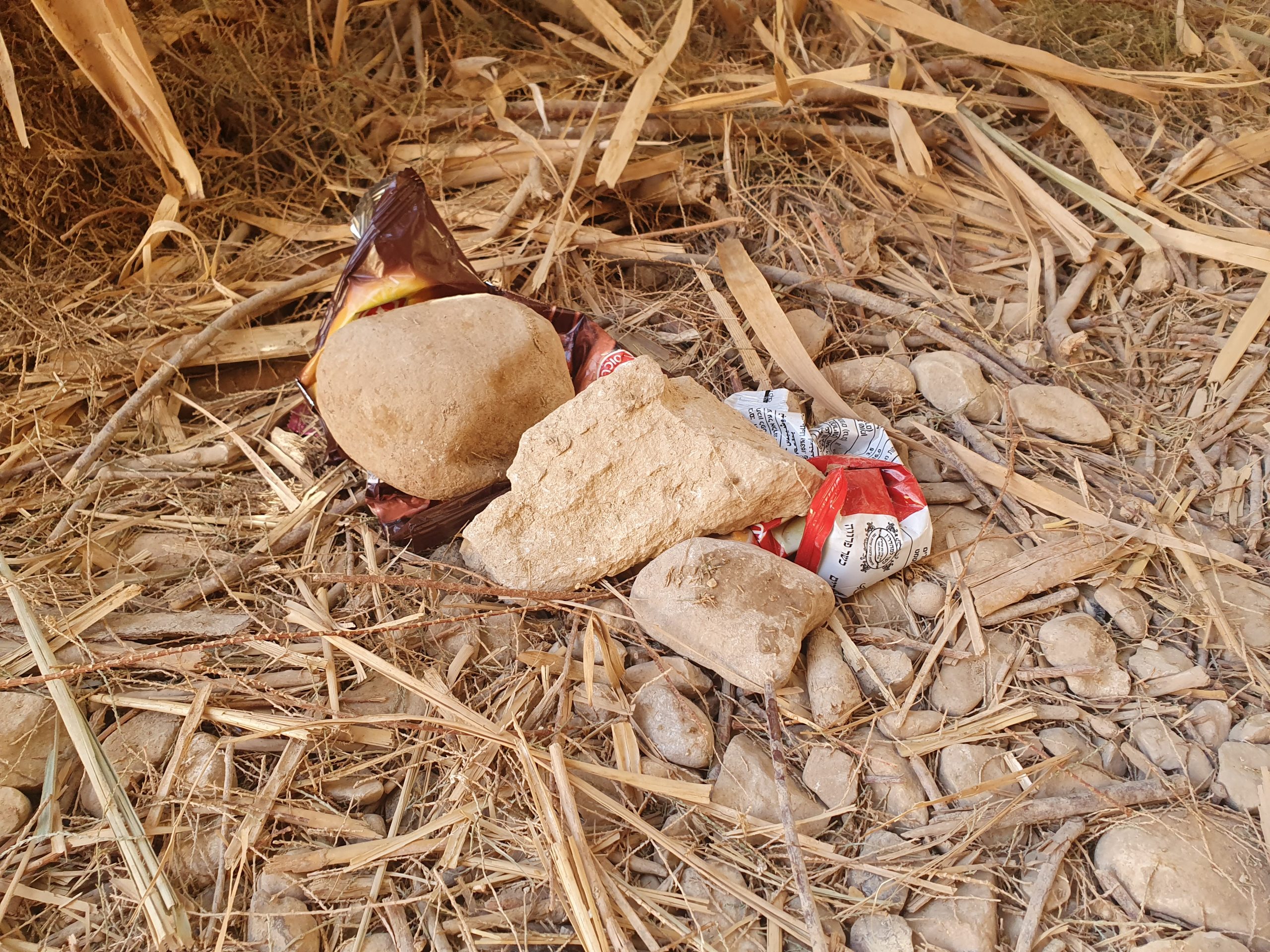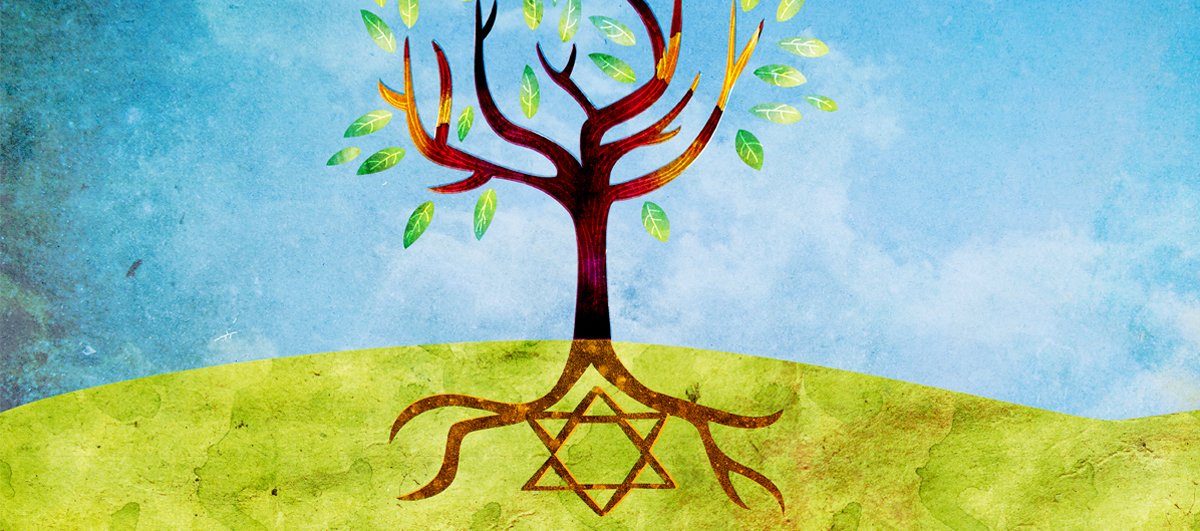The Land of Milk?
June 4, 2019Eating dairy products is a long-standing tradition of Shavuot. The increasing demand for dairy around the holiday sheds light on the environmental impact of the industry. Is an environmental-friendly Shavuot just around the corner?
Shavuot, the “Festival of Weeks,” which starts this year at sundown on June 8th, is known as the day when God gave the Israelites the Torah, and Moses read the Ten Commandments on Mount Sinai. It is also known for the harvest from the Land of Israel. In biblical times, the most common tradition during Shavuot was to bring the first fruits of the harvest to the Temple in Jerusalem. Today, one of the most common traditions among Israelis is the consumption of milk and dairy products. However, this tradition has many harmful environmental impacts that go hand-in-hand with the rise of dairy consumption.
Shavuot is known as Israel’s “foodie” holiday. Weeks before Shavuot, Israelis see an increase in television advertisement from Tnuva, Strauss, and other companies specializing in dairy products. Pamphlets in newspapers have recipes for dairy-based foods including cheesecakes, blintzes, and quiches. These endorsements have been around for decades. Bakery and pastry shops alike ramp up their production of decadent dairy-rich meals and desserts. During the week of Shavuot in 2016, dairy product consumption increased by 53%, while dairy consumption of deli products increased by 84%. The week after Shavuot, sales of these products fell below average.
A multitude of nutrients is found in dairy products, including calcium, protein, vitamins (A, B, and D), minerals, and probiotics. The benefits of eating low-fat dairy products include bone, muscle, and digestive health. Dairy can also be a high source of iodine. Many Israelis are iodine-deficient, which adds to its positive benefits. However, the negative environmental impacts of the dairy industry, as well as the moral issues related to the conditions of the industrial dairy farms in which cows are kept are becoming a prevalent concern in today’s world.
52 L of water for 1 kg of milk
The livestock industry, which includes diary, not only depletes resources such as land and energy, but impacts environmental factors including air, water, and soil quality because of its emissions. In particular, milk production uses a high amount of water consumption compared to the pork and poultry industries. According to the Food and Agricultural Organization, 14.5% of all greenhouse gases come from livestock industry practices, including cow manure and emissions. These greenhouse gases do not allow heat to escape from the atmosphere, thus increasing the effects of climate change.
An analysis carried out by Shir Triky, MA. and Prof. Meidad Kissinger from the Ben-Gurion University of the Negev found that to produce 1 kg of cow milk in Israel, 0.5 square meters of land and 52 liters of water were needed, and 1.03 kg of CO2-eq (equivalent to carbon dioxide, Global Warming Potential) were emitted into the atmosphere, mostly as byproducts of cow digestion.
Environmental impacts from Israel are among average in the dairy industry worldwide. On the contrary, land use impacts are lower in Israel compare to the rest of the world because the cows do not graze. Israel has almost no land used for grazing, and their nutrition is based on a feed mix that is high in nutrients. In general, cattle feed is an issue because of the large amount of land and resources, such as water and energy that are required to produce enough feed.
Another possible explanation for the lower environmental impacts that Israel has on the dairy industry is because the Israeli-Holstein cow, the most common species in Israel, produces the highest amount of milk per cow in the world at 12,460 kg per cow. Dr. Hagit Ulanovsky, an expert on environmental risk management policy and food regulations, says that since we are taking enormous amounts of milk from each cow in Israel despite the hot climate, we are not using as many environmental resources. Since fewer cows are needed to produce a higher yield, not as much feed is necessary.
Dairy farming has other negative environmental and ecological impacts. Many large dairy farms use antibiotics in order to ensure the healthiness of the cow, thus boosting milk production. However, the overuse of antibiotics causes them to leach into the soil and create an environment that allows harmful antibiotic-resilient bacteria to thrive. Pesticides used to keep cows pest free have also been problematic. When cows graze, they spread these pesticides to the surrounding ecosystems, which negatively impact biodiversity and soil.
Cow manure also has negative impacts due to its high concentrations of nitrogen (N) and phosphorous (P). If the manure is not removed, processed, and treated in an eco-friendly manner, excess nitrogen and phosphorous can leach into and pollute nearby waterways, causing eutrophication, which increases plant and algal blooms and decreases oxygen concentrations, thus killing marine life that use oxygen to survive including fish. To prevent such harmful environmental issues around the world, and in Israel, manure is treated in facilities. A byproduct of treated manure is biogas, which is being used as a renewable energy source. Biogas reduces the need for fossil fuels, thus decreasing the amounts of greenhouse gases put into the atmosphere.
An alternative Shavuot menu
The Ministry of Health in Israel has some suggestions as to how to maintain a healthy and eco-friendly diet during Shavuot. For instance, it is recommended to substitute yellow cheese and cheeses high in fat for those with lower fat content, as well as substituting cream with yogurt. In order to keep with the Mediterranean diet, the Ministry advises to make dishes with legumes instead of dairy products and sauces that are tomato, herb, or oil-based instead of cream-based. Also, it is worth including salads with vegetables or vegetable dishes in the holiday menu. For dessert, fruit salads can be prepared instead of cakes and cookies, and dairy can be replaced with soy. The Ministry also emphasizes portion control and choosing reduced-fat dairy products.
In addition to the Ministry’s suggestions, it is vital to notice the amount of sugar, salt, and saturated fat found in dairy products. Ulanovsky says, “if you go to the supermarket and look at dairy products, very few can be considered healthy. Two healthy options are regular milk and plain yogurt.” She adds, “cheeses are too fatty and salty. Yogurts with fruit have too much sugar. You feel like most things in the refrigerated section are healthy, but that is wrong. About 75% of all products in this section will be getting a red sticker.” The red sticker initiative created by the Israeli Ministry of Health, beginning in January 2020, will mark foods high in sugar, salt, and/or saturated fat with a red sticker. According to Ulanovsky, replacing dairy from one’s diet with products such as soy can help reduce environmental impacts.
In the past, only those who were lactose intolerant could ask for dairy alternative foods. Now, however, as the vegan capital of the world, Tel Aviv is going one step further to make changes to the traditional Shavuot menu. Shani Banai, a vegan chef at the Meshek Barzilay deli, one of Tel Aviv’s prized vegan establishments, says that vegans want “the same dishes as before because they don’t want to miss out on the holiday.”
Since veganism is common in Tel Aviv, people are very accepting about altering Shavuot recipes. One recommendation that Banai has for cooking vegan is to soak cashews in water and grind them up to make cashew cheese, and adding garlic confit, salt, or other flavorings for taste. Adding sugar to the cashew mix can substitute for a cake base as well. “If you are against using dairy products, it doesn’t mean you have to miss out on the dishes during Shavuot. You can still eat everything without causing the suffering of the animals,” she concluded.
This ZAVIT article was also published in The Jewish Journal on 06/03/2019.







